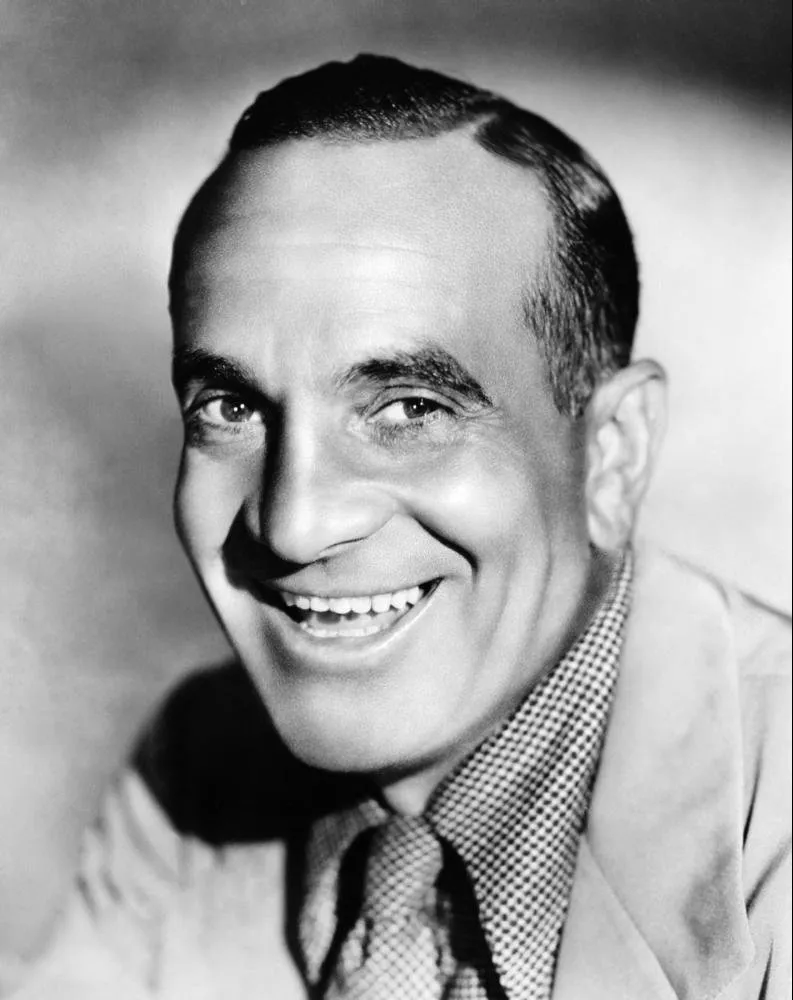How to get a Hive Account

Born: May 26, 1886 – Died: October 23, 1950
Al Jolson, born Asa Yoelson in Seredzius, Lithuania, emerged as an iconic figure in the entertainment industry, widely recognized as "The World's Greatest Entertainer." His parents, Naiomi Etta Cantor and Moise Rubin Yoelson, a Jewish family, moved to Washington, D.C., where his father established himself before bringing over his family. Tragically, his mother died shortly after, deeply affecting young Al. His rise to fame, marked by an electrifying presence and a groundbreaking career, left an indelible mark on Hollywood and the world of music and film.
Early Life and career
Jolson's early life was characterized by hardship and tragedy, but he found solace in the theater. Along with his brother Harry, he performed for soldiers and senators, displaying early signs of his remarkable talent. His vaudeville career, initially alongside his brother in New York, didn't take off until he went solo in San Francisco. He was eventually signed by Lew Dockstader's Minstrels, a turning point in his career.
His first major breakthrough came with his performance at the opening of the Shubert Brothers' Winter Garden Theater on Broadway in 1912. This marked the beginning of what many consider the greatest career in Broadway history. Jolson's unique style and electric personality soon made him synonymous with the Winter Garden Theater, dominating the stage for nearly two decades.
Jolson's role in the 1927 film "The Jazz Singer" catapulted him to international stardom, marking a significant moment in film history as the first feature film with synchronized dialogue. However, his transition to film was met with mixed success, as his on-screen presence couldn't fully capture his stage charisma.
Throughout his career, Jolson won numerous awards and accolades, including being voted "The Most Popular Male Vocalist" by Variety. His influence on the entertainment industry continued posthumously, inspiring artists like Elvis Presley and David Bowie.
Jolson's personal life was as eventful as his career. He was married four times, the last to Erle Chenault Galbraith, with whom he had two children. His life was not without controversy, notably his performances in blackface, a practice that has since been critically reevaluated. Despite fading stardom by the mid-1940s, his legacy was revitalized with a biographical film, leading to a resurgence of popularity.
Jolson's impact on Hollywood and the entertainment industry is profound. He is remembered not only for his groundbreaking role in "The Jazz Singer" but also for his dynamic stage presence and influence on future generations of performers. His ability to connect with audiences and his trailblazing contributions to music and film make him a true icon in the entertainment world.
Filmography
| Year | Title | Role |
|---|---|---|
| 1949 | Jolson Sings Again | Al Jolson (singing voice, uncredited) |
| 1945 | Rhapsody in Blue | Al Jolson |
| 1939 | Swanee River | Edwin P. Christy |
| 1939 | Hollywood Cavalcade | Al Jolson - Recreation of 'The Jazz Singer' Scene (as Mr. Al Jolson) |
| 1939 | Rose of Washington Square | Ted Cotter |
| 1938 | Hollywood Handicap (Short) | Al Jolson |
| 1937 | Screen Snapshots Series 16, No. 12 (Short) | Al Jolson |
| 1937 | A Day at Santa Anita (Short) | Al Jolson (uncredited) |
| 1936 | The Singing Kid | Al Jackson |
| 1935 | Go Into Your Dance | Al Howard |
| 1934 | Wonder Bar | Al Wonder |
| 1933 | Hallelujah I'm a Bum | Bumper |
| 1930 | Big Boy | Gus |
| 1930 | Show Girl in Hollywood | Al Jolson - Cameo Appearance at Premiere (uncredited) |
| 1930 | Mammy | Al Fuller |
| 1929 | New York Nights | Al Jolson - Cameo (uncredited) |
| 1929 | Say It with Songs | Joe Lane |
| 1928 | The Singing Fool | Al Stone |
| 1927 | *The Jazz Singer* | Jakie Rabinowitz |
| 1923 | Mammy's Boy (Short) | Al |